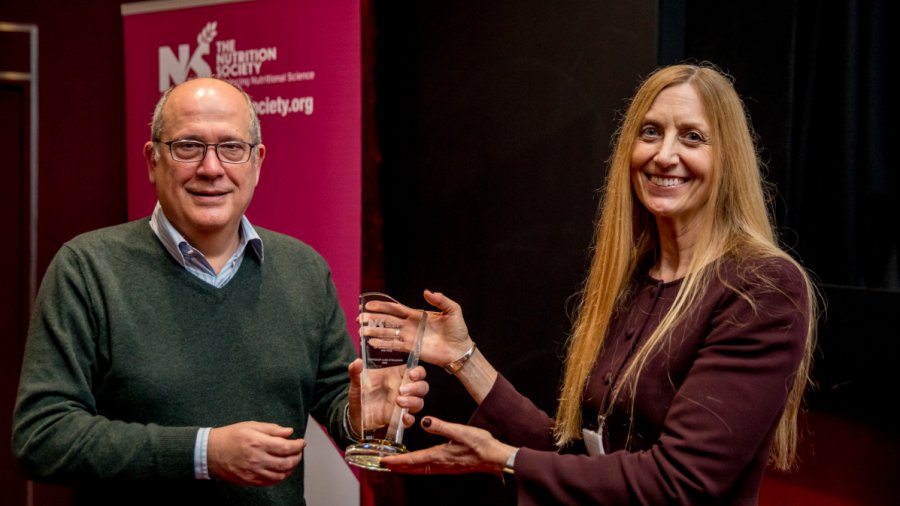Staff blog: Prof Ilias Kyriazakis reflects on winning the prestigious Blaxter Award
As well as being a great honour and recognition for my work, winning the 2021 Nutrition Society Blaxter Award for my contribution to the field of Whole Body Metabolism and Animal Nutrition also signifies the completion of a cycle in my career.

I was awarded by the Society its highest honour bestowed on its younger members, the Silver Medal, in 1995.
At that time the Medal was awarded to nutritionists below the age of 35, who had shown promise in their early research
career in nutritional sciences. The Blaxter Award, awarded 26 years later, is for the contribution of my whole career to its subject. I hope that The Nutrition Society feels somehow vindicated in recognising my ‘potential’ a quarter a century ago!
I was the first animal nutritionist to be awarded the Silver Medal and remain the only animal nutritionist to have done so. To me this signifies the development of the Society over the last 30 years or so.
When I became a member as a young postgraduate in 1989, it was dominated by scientists with interests in animal nutrition. This dominance has waned over the years and reflects the ascendancy of human nutrition as the dominant field in nutrition research. It is a natural progression, reflecting the impact of nutrition on human health and the development of methodologies and techniques to assess this.
The recognition of nutritional epidemiology as a powerful tool to understand the impact of nutrition on population health
has also contributed towards this. It is not surprising, therefore, that animal nutrition research has increasingly been viewed as mature science, whereas human nutrition has been addressing the big questions.
Although the Society has made several efforts to continue to cater for the interests of animal nutritionists, their membership within the Society has declined over the same period. Many scientists operating in the field have joined other learned societies who appear to cater more for their specialist interests and, in several instances, the number of research animal nutritionists
has dwindled.
However, more recently there has been an increased interest in the contribution of human diet to climate change, something which is made through the link between the contribution of agriculture, and livestock production in particular, to the greenhouse gas emissions. Livestock emissions, of course, arise mostly from the feed they consume and the nutrients they excrete. The debate over what sustainable human diets look like, and the contribution of both plant and animal-based foods to human health and sustainability, is therefore an active
one.
Addressing this issue requires precise measurements of the impact of the production of feed ingredients, how livestock utilise the feed they consume, and the nature of their excretions. The use and consequences of sustainable alternative or novel feed ingredients for livestock have opened new research avenues for animal nutritionists, as well as requiring a closer collaboration
between human and animal nutritionists, and with other scientific disciplines.
I view the recent establishment of The Nutrition Society Blaxter Award, of which I am its second recipient, within the context of this debate and the challenges and opprtunities it provides. After all, one of the major contributions of Sir Kenneth Blaxter was the prediction of the amount of methane, one of the major greenhouse gases produced by ruminants. His insights in this topic continue to be of relevance today and, for this reason, I feel particularly honoured to have been given an award that bears his name.

Prof Ilias Kyriazakis
Media
For further info, please contact u.bradley@qub.ac.uk
